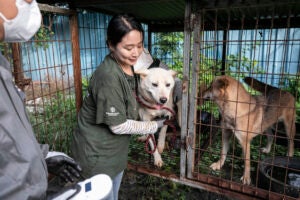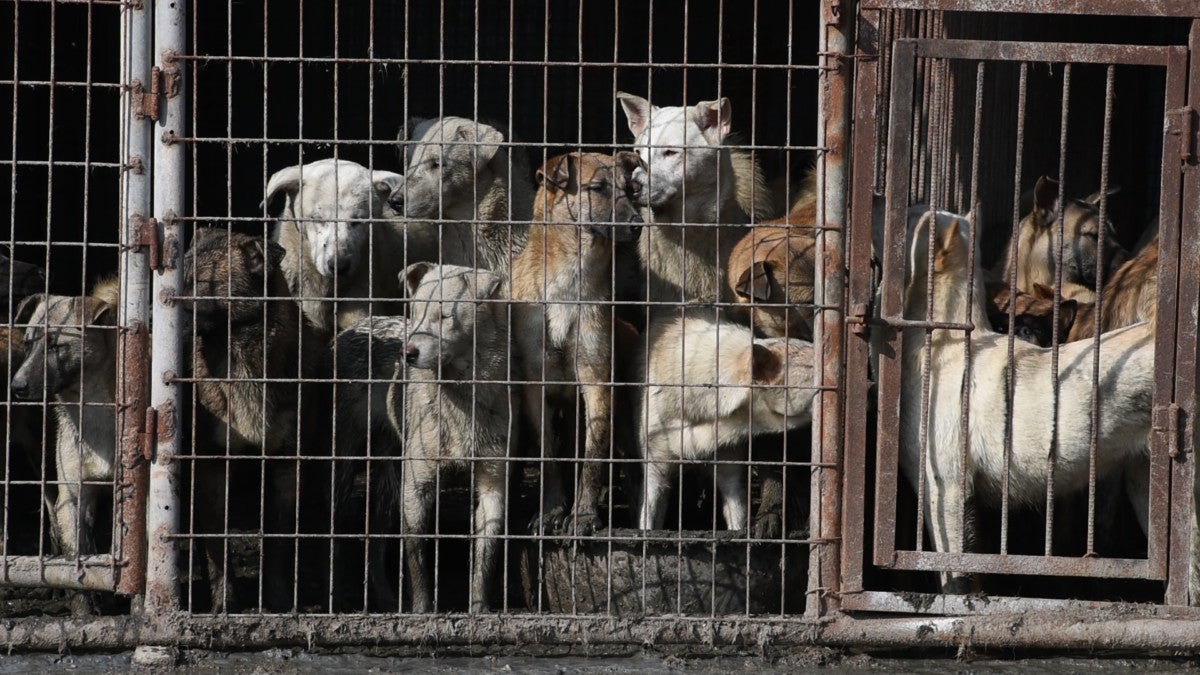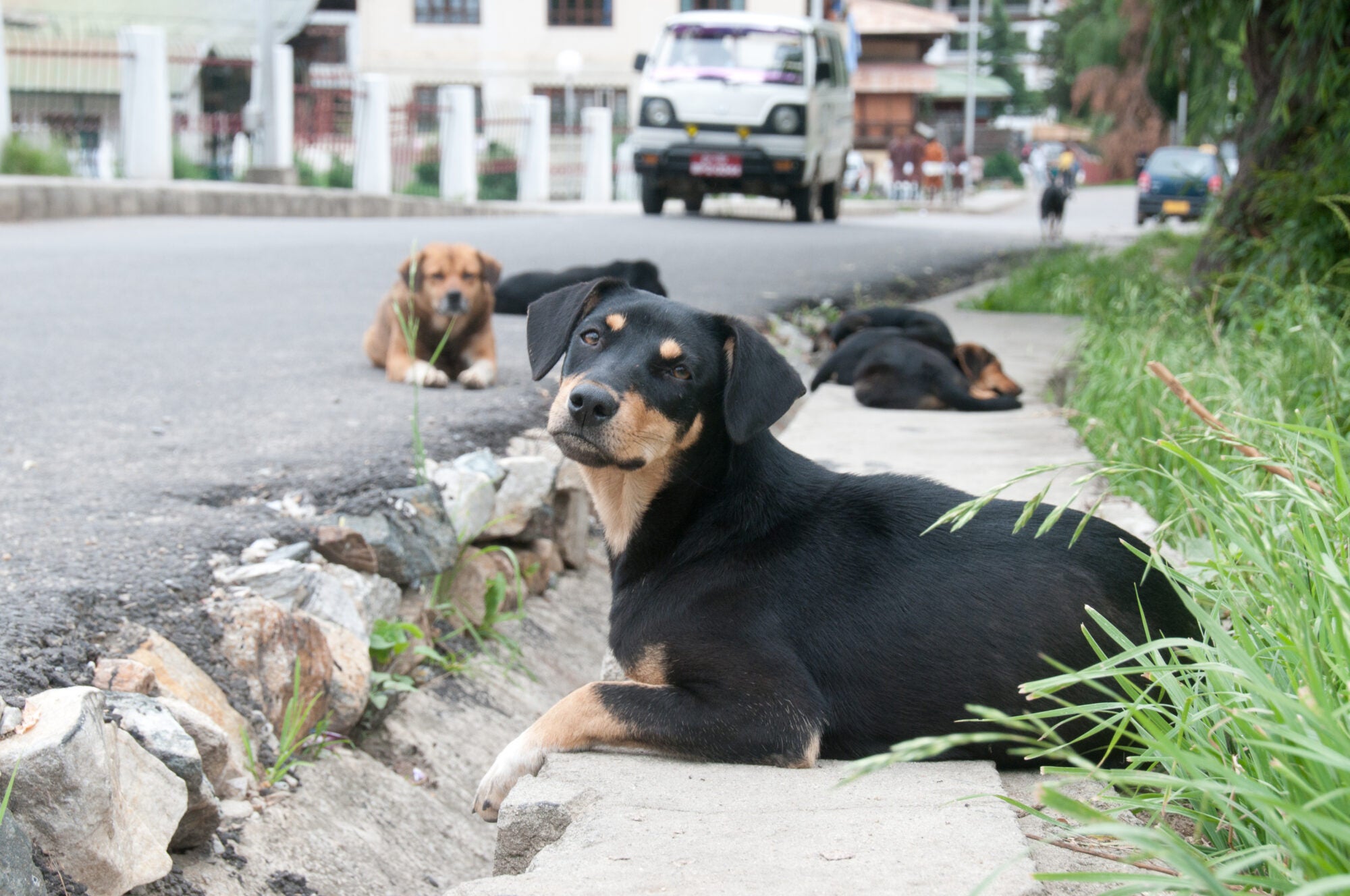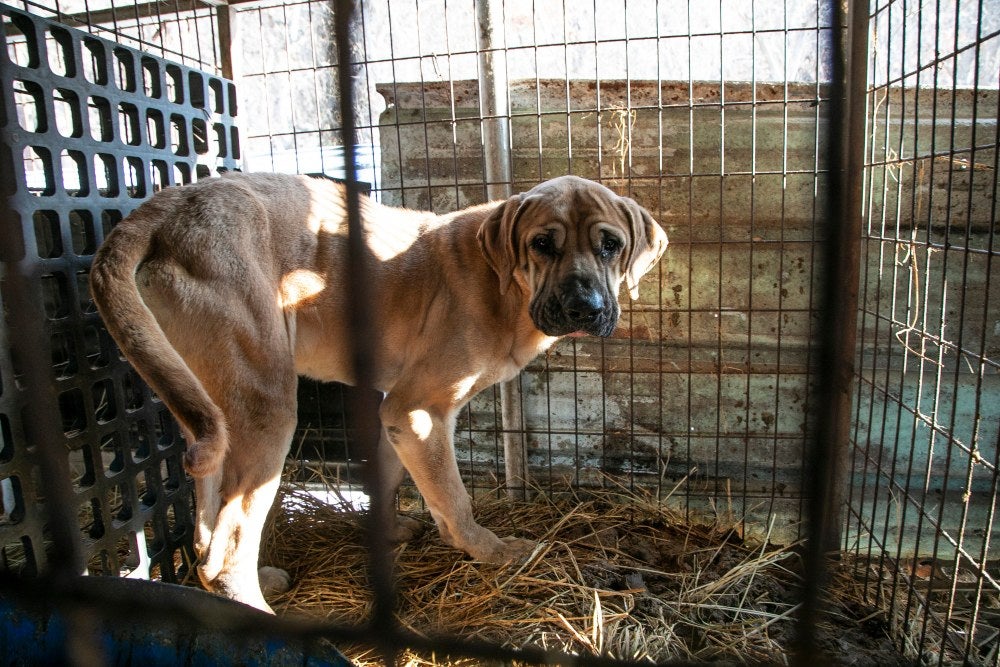
TORONTO – As the government in South Korea considers a ban on the dog meat industry, more than 100 lucky dogs who were rescued from the country’s dog meat farms last year will arrive in Canada to continue their journey to find forever homes.
Many of the dogs were saved from a dog farm on Jindo Island by Humane Society International in partnership with local group LIFE. They were found confined in small, dilapidated wire cages in horrendous conditions, many of them forced to witness the brutal slaughter of cage mates. Conditions on the farm were so bad that local authorities responding to neighbour complaints about dogs crying in terror closed down the farm for breaching the Animal Protection Act. In November last year, the South Korean government initiated a task force to consider a ban on farming dogs for consumption, prompted by a suggestion from President Moon Jae-in.
All the dogs coming to Canada were being bred for human consumption and most are Jindos, South Korea’s national dog breed. Due to flight restrictions, they were unable to leave South Korea at the time of rescue and so were cared for by HSI’s partner shelter. Now free to fly, the Jindo Island rescues together with dogs HSI saved from other farms, will arrive in Ontario over the next week and a half to receive much needed medical and behavioural care at HSI/Canada’s temporary shelter in Cambridge. While many of the dogs will later be transferred to a separate shelter in the United States to start their new life, around 40 dogs will travel to HSI/Canada’s Montreal facility to begin their search for adoptive families and finally put their traumatic past behind them.
Ewa Demianowicz, senior campaign manager for HSI/Canada, said: “We are so thrilled to once again help our colleagues in South Korea end the cruel dog meat trade by welcoming these dogs who have been rescued from horrible dog meat farms at our emergency shelters. HSI/Canada will provide veterinary and behavioural care for these dogs and then our partner organisations will help find loving adoptive families for around 40 of them, while others will travel on to the United States to be cared for by our colleagues there. These dogs have endured tremendous suffering and our team is thrilled to be bringing them to safety and helping them recover from their physical and psychological trauma.”
At the Jindo Island farm, HSI/Korea was horrified to discover a large pile of collars in the central killing area of the farm where countless dogs will have been killed by electrocution and butchered for dog meat while their terrified cage mates looked on. Humane Society International/Korea, which has closed down 17 other dog meat farms in the country and rescued almost 2,500 dogs, is campaigning for legislation in South Korea to end the dog meat industry.
Among the dogs coming to Canada is gentle Kaya, whose cage on the Jindo Island farm was positioned very close to the slaughter area. Despite the traumatic scenes she must have witnessed, Kaya was eager for human affection during her rescue, and loves being fussed over. Kaya’s tail doesn’t stop wagging, she’s always so happy to see people. Also flying to Canada is sweet Moose who is very calm and enjoys treats; energetic Max who was likely an abandoned pet; Sony who was depressed and emaciated at rescue but is now gaining weight and confidence; and other sweet natured Jindos such as Lucie-loo and Jenny-joo.
As these dogs start new lives, HSI’s team in Seoul will continue to campaign for an end to the dog meat industry and is looking forward to assisting the government’s task force in its deliberations. Since 2015, HSI’s Models for Change program has seen the NGO work in co-operation with many dog farmers eager to leave the controversial and dying industry, helping them transition to more profitable and humane trades. Opinion polls show that most Koreans (84%) don’t or won’t eat dog meat, and there is growing public support (almost 60%) for a ban. Despite this, an estimated 1 to 2 million dogs are still kept on thousands of farms across South Korea.
Nara Kim, HSI/Korea’s dog meat campaign manager, said: “I hope very much that for these dogs flying to Canada, the dog meat industry will soon be just a distant memory. They have experienced the worst of humanity, but now they will know what love and compassion feels like. Here in South Korea we are at a crossroads, with the government giving serious consideration to ending this cruel industry. The many years of experience that HSI’s pioneering dog farm closure program has to offer will hopefully take us one step closer to a future where no dog farms exist and all dogs can live happy lives.”
HSI’s farm closures were conducted under COVID-19 health and safety restrictions. A veterinarian tests for the presence of the H3N2 virus (“canine influenza”) at the time the dogs receive their rabies, distemper, hepatitis, parvo virus, parainfluenza and Leptospira vaccines. The dogs are quarantined and health certified prior to transport overseas, in accordance with international export and import requirements.
Download photos and video of this rescue.
ENDS
Media Contact: Ewa Demianowicz: 514-575-3499, edemianowicz@hsi.org



